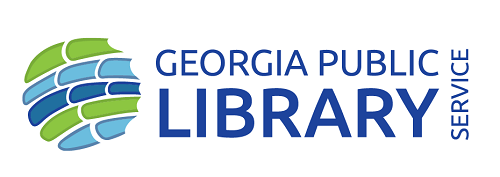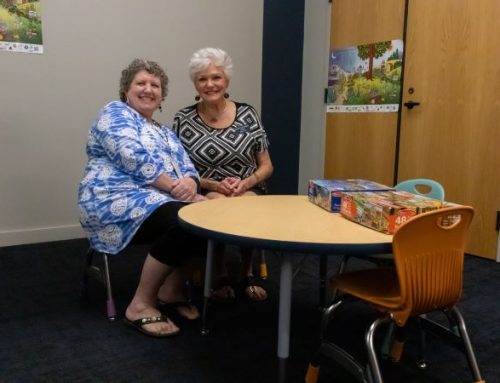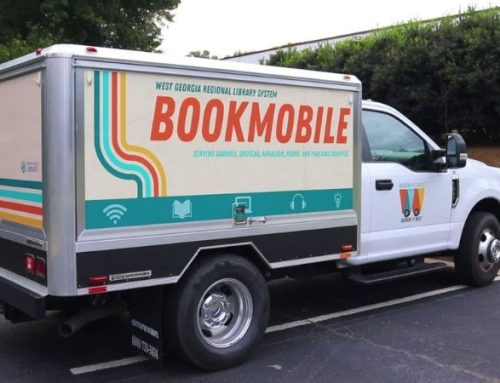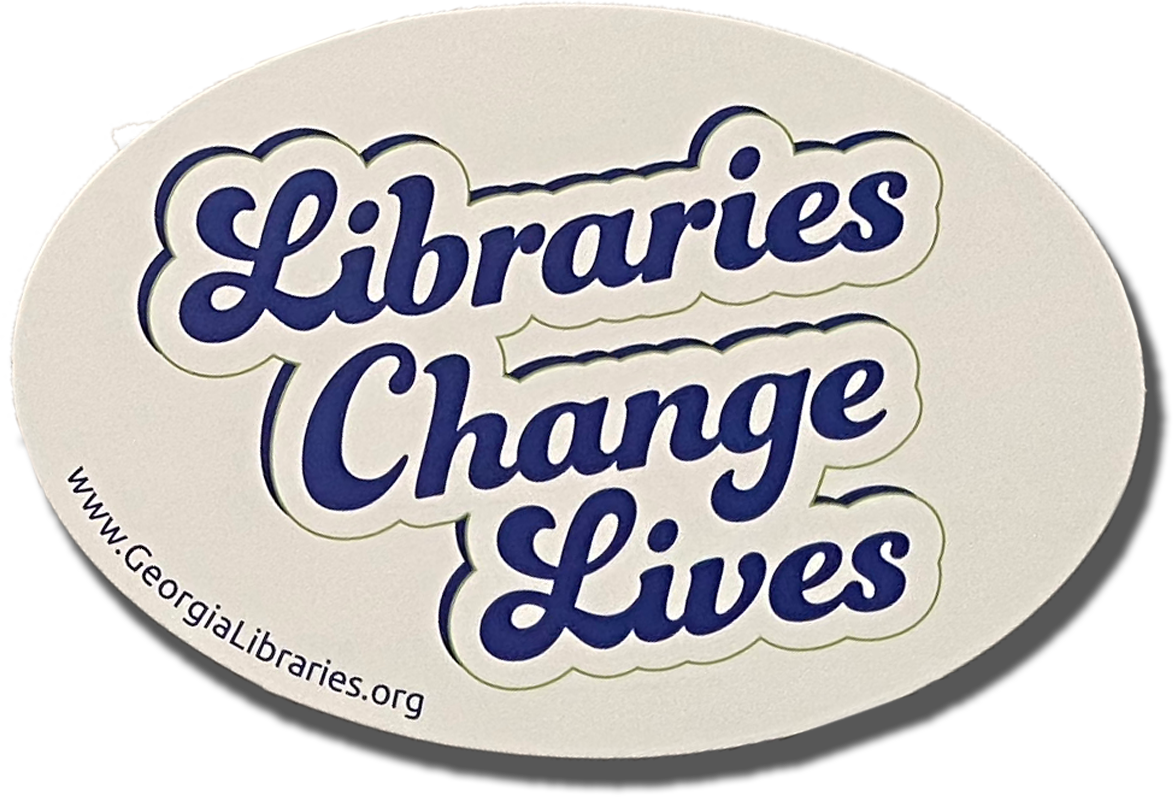
According to a 2008 American Library Association (ALA) report, less than 1% of credentialed librarians are African American males. But for those who do enter the profession, the desire to positively impact their communities is the motivating factor. For Eric Thompson, Richard Coleman, and Emanuel Mitchell, being an agent of change is a top priority.
Eric is a graduate school student at Florida State University pursuing a Master of Science degree. Richard is Assistant Director for Library Services at West Georgia Regional Library System, and Emanuel is Director of the Augusta-Richmond County Public Library System.
We talked to all three, who are in various stages of their careers (a library school student, an relatively new assistant director, and an experienced library director), to learn about their paths to librarianship, their experiences, and their unique perspectives as black men in librarianship.

Eric Thompson
Eric is a student in Florida State University’s School of Information. He shared his experiences with us.
What is your name?
Eric Thompson
Can you share a little bit about your educational background?
I earned a BA in English from Morehouse College. I also have an MA in English from Texas Southern University.
What school do you currently attend and what are you studying?
I’m a student at Florida State University, and I’m working on a Master of Science in Information.
What are some of the more interesting things you’ve learned as an information science student?
Currently, I’m enrolled in courses that will provide me with a good foundation in general librarianship, information architecture & technology, as well as youth information needs and services. So far, I’ve taken courses in marketing of library and information services, grant writing and evaluation, management of information organizations and introduction to information services.
What are your career goals? What aspects of librarianship are you interested in?
My career goal is serving as reference librarian or metadata librarian for an esteemed college or university.
What made you interested in librarianship?
My interest in librarianship stemmed from my experiences as a K-12 English teacher in a public school system. I witnessed how low literacy rates, a lack of curriculum that mandated college-level academic writing and research, as well an apparent lack of wireless access and functioning laptop and Chromebook devices, impacted academic progress in the classroom as well as professional progress outside of it. This omission created a need for more information professionals as myself to serve.
What do you think can be done to make more black males interested in librarianship?
I think by encouraging more black males to use social media: Instagram, Twitter, and Facebook in manners that encourage reading, writing, and research.
Do you have friends or family in librarianship?
No, I do not have family members in librarianship.
Was librarianship your first career choice? If not, can you tell me a little bit about your decision to pursue librarianship?
No, my first career choice was to be an associate professor at college or university. My decision to pursue librarianship developed as my fondness for teaching expanded. I enjoyed instructing students and faculty on the nuances in citation styles and research. Librarianship will also give me an opportunity to assist students navigate various academic programs.
Do you know other black male librarians? How is your relationship with them?
I know very few black librarians and I believe there is a need for more networking amongst the select group who perform this type of work.
Have you faced challenges on your path to librarianship? If so, please share a little bit about your experiences.
Honestly, I have faced some challenges in pursuing a career as a librarian. Because of the lack of resources in public library funding as well as the impact COVID-19 had on enrollment in state university systems, job openings have not been abundant.
Anything else you’d like to share about your experiences as a black male pursuing librarianship?
If one were to ask me, “why, as a black male, would you choose librarianship”? My response is simple: adequate representation. I believe that, for the United States to truly espouse its ideals as a nation, individuals, one by one, must accept the challenge to create change and I chose to do so by providing information services to the underrepresented

Richard Coleman
Richard is Assistant Director for Library Services at West Georgia Regional Library System.
What is your name?
My name is Richard Coleman.
What is your undergrad degree in, and where did you get it from?
I have two undergraduate degrees: a Bachelor of Art from Morris Brown College in General Studies with a concentration in Religion, and a BA in Religion from Saint Leo University.
What is your graduate degree in, and where did you get it from?
I earned my graduate degree from the University of North Texas. It’s in Library Science.
What made you interested in librarianship?
I have worked in libraries in various capacities for many years. I started at an academic library working in public safety. During my time in that role, I was immersed in information daily which inspired me to go to graduate school. I wasn’t directly involved in librarianship, but I was very curious about what it involved. Seeing librarians working with students and helping them find resources and answers to their questions was intriguing. And seeing so many students leave the library with relief and smiles on their faces was appealing to me and made me decide “I want to be a part of that.”
Was librarianship your first career choice? If not, can you tell me a little bit about your journey / decision to pursue librarianship?
No, librarianship wasn’t my first choice as a career. I worked at the Atlanta University Center’s Robert W. Woodruff Library for several years, then left to pursue a career in law enforcement. That particular job didn’t work out for me, so I returned to the library. Since all of the public safety positions were full, I was offered a job as a library assistant in the Periodicals department. I didn’t know it at the time, but that opportunity set me on an unplanned trajectory. A few years later, I did a lateral transfer to the Inter-library loan department with the same title. That’s when my supervisor at the time, Monica Riley, encouraged me to apply for the library science program at the University of North Texas.
Do you have friends or family in librarianship? If so, can you share a little about who they are and what they do/did?
Yes, my sister Dr. DeAnza Williams is a fellow UNT alum. She was manager in the Nashville Public Library System for several years. Then she earned her doctorate in library science from the University of Illinois. She is currently a professor at the University of Wisconsin. Watching her progress and success has been an inspiration for me.
Do you know other black male librarians? How is your relationship with them?
Yes, I know a few black male librarians. Some I know from past working relationships, and others I’ve met at professional networking events like conferences and trainings. I talk to a couple of them every month. We get caught up on a variety of topics. Our conversations aren’t always about libraries or what’s happening at work. We talk about life and family in addition to sharing advice on navigating work and careers.
What do you think can be done to make more black males interested in librarianship?
We have to start early to show the many spaces available for all in librarianship. There’s an opportunity for mentorships and scholarships to help promote the idea that librarianship is for everybody. Unfortunately, the misconception is librarianship isn’t for men of color, but it is. I also think black male librarians can do more to make ourselves more visible to the younger generation. Present more, serve as community mentors, attend career days at schools – anything to show young males that librarianship is a viable and available career.
What are some of the more interesting things you have learned as a librarian?
I think the biggest thing I’ve learned is there’s always a need for continual learning. There is always something I either have to learn or I want to learn, both personally and professionally. Technology changes. The way we relate to each other changes. How libraries meet the needs of communities change. With all of that, it’s critical to stay up-to-date on trends and best practices. And as a leader, it’s important to help others stay informed. I’m always learning and helping others learn.
Have you faced challenges as a librarian? If so, please share a little bit about them?
The challenges I have faced vary, but the constant piece is people, especially in management or administration. Whether they are colleagues or the general public, it can be difficult working with people with different backgrounds, life experiences, ideas, and opinions. Many times, I wonder and try to figure out “how do I help this person get what they need and reach a mutually beneficial resolution without sacrificing my own wants and needs… or violating policy?” As I have worked in this industry, I have always tried my best to never mistreat people, but make sure they are given everything they need to succeed.
What do you think about the future of libraries?
I think it’s bright because of the various services and learning spaces that the library is providing. Tutoring, small business development, community partnerships which provide any community with a variety of resources, opportunities to explore technology, laptops and wifi hotspots to help people get work done on their terms – it’s all at the library. Public libraries are quickly evolving and I’m excited to be a part of the movement.
Anything else you’d like to share about your experiences as a black male in librarianship?
I think life is about rooms. We enter rooms our entire life and come out of them with various experiences. How we are judged at the end of those experiences matters little. What matters is that we enjoyed the experience of walking through that room and adding to that experience as we continue on to walk through other rooms.

Emanuel Mitchell
Emanuel is Director of the Augusta-Richmond County Public Library System.
Please tell us your name and a little bit about your educational background.
My name is Emanuel Sinclair Mitchell. My undergraduate degree is in Political Science from Tuskegee University, and I have a Masters in Library and Information Services from Clark Atlanta University.
What made you interested in librarianship?
I started working in the library at Tuskegee University as a work-study student.
Was librarianship your first career choice? If not, can you tell me a little bit about your journey/decision to pursue librarianship?
Librarianship was not my first career choice. I wanted to be a lawyer. Although there is something about “want” versus “destiny”, I wanted to become a lawyer to create positive change within my community. My destiny was to become a librarian and not only create positive change in my community, but to also be a positive change in my community.
Do you have friends or family in librarianship? If so, can you share a little about who they are and what they do/did?
Of course. My uncle was a librarian for the Free Library of Philadelphia, and I have many friends who are librarians. Librarians are a tightly knitted group of professionals, although there are not many black male librarians and even fewer black male library directors in the United States of America.
Do you know other black male librarians? How is your relationship with them?
Yes, I know many black male librarians in my field, and we work diligently to be that positive change.
What do you think can be done to make more black males interested in librarianship?
Now that is a very good question. There are a host of factors that need to be addressed to make this profession more appealing to black males. As you are aware, librarianship is a non-traditional career for black males, but one of the most rewarding. Given that, I will only focus on one aspect of this career that will interest black males with this education. As a librarian, I have the ability to inspire, inform, and captivate the future leaders of tomorrow. Reading a book opens your mind to a world of splendid wonders. Black males in a non-traditional role as librarianship open our youth up to a world of possibilities. We as black male librarians must share our experience and love for the profession to help eliminate any stereotypes about what the profession is and what librarians do. Librarians are the gatekeepers of history, trends, and society as a whole. We make the impossible possible.
What are some of the more interesting things you have learned as a librarian?
Libraries are the center of their community. Libraries provide a variety of services to meet a wide range of community needs. Public libraries are coming up with programs and services that support all of society, from birth to school-age to career to retirement. That’s not something one can fully appreciate until in the profession and doing the work.
Have you faced challenges as a librarian? If so, please share a little bit about them.
Yes, I have faced many challenges as a black male librarian, as most of us have. From the first time I decided to make this a career, many male family members gave me the side-eye. And within the profession, there were barriers put in place to deter me from completing graduation. One experience that I had was so horrific I had to take a leave of absence from the library without pay to complete my MLIS. What I have learned from all of this is that it is not meant for others to see your dreams and goals. If they did, then it would not be your vision; it would be theirs. Never stop believing in yourself and fully commit to what you want out of life. As for me, I wanted to be a positive change for my community, and as a librarian, I am achieving my goal everyday.
What do you think about the future of libraries?
I am very excited about the future because the next generation of librarians are conquerers (fearless) and will continue to help create and lead the way for intellectual freedom for all.
Anything else you’d like to share about your experiences as a black male in librarianship?
This journey of librarianship is a powerful one. Be on the lookout for my book soon (Embarking on an Uncommon Path: Librarianship from an African American Male’s Perspective.)





